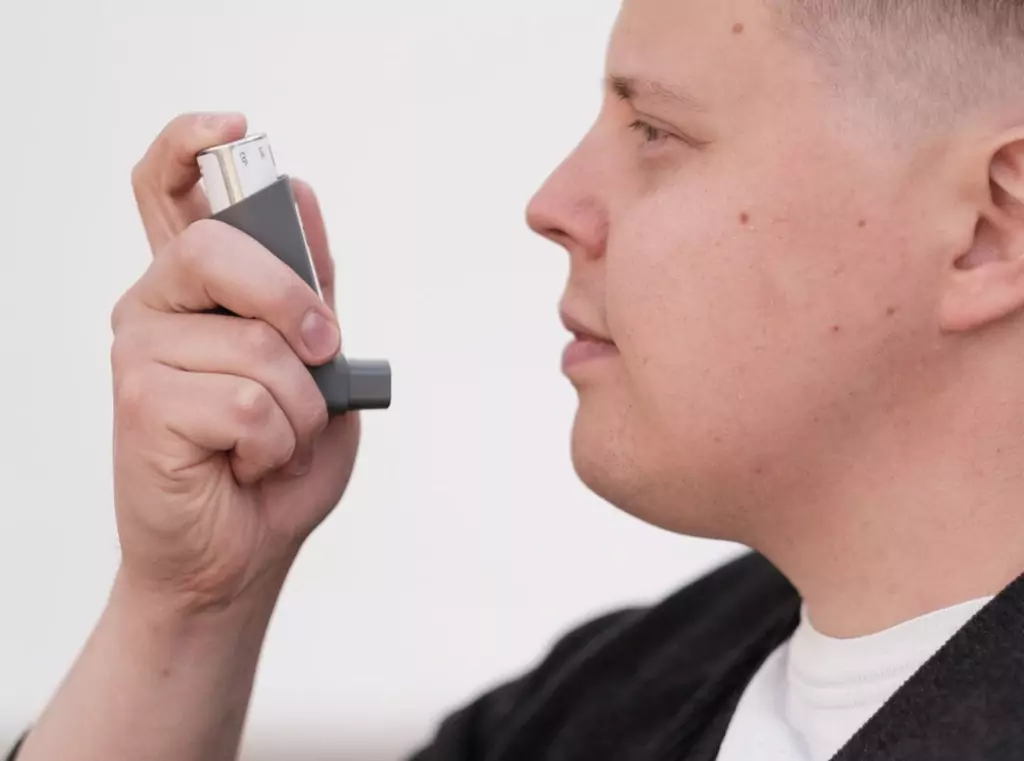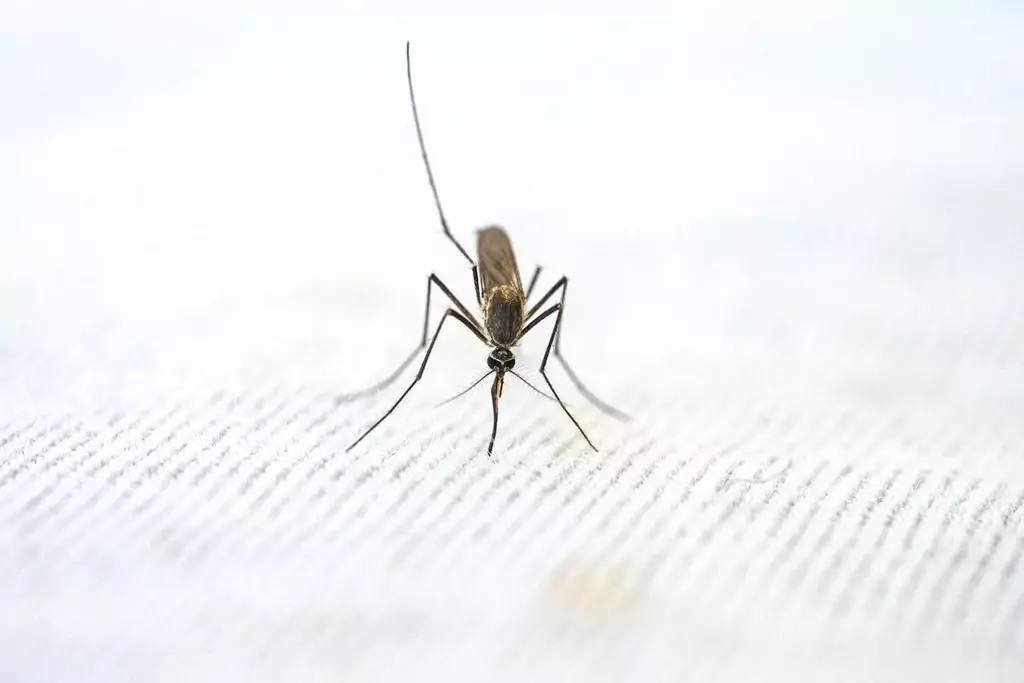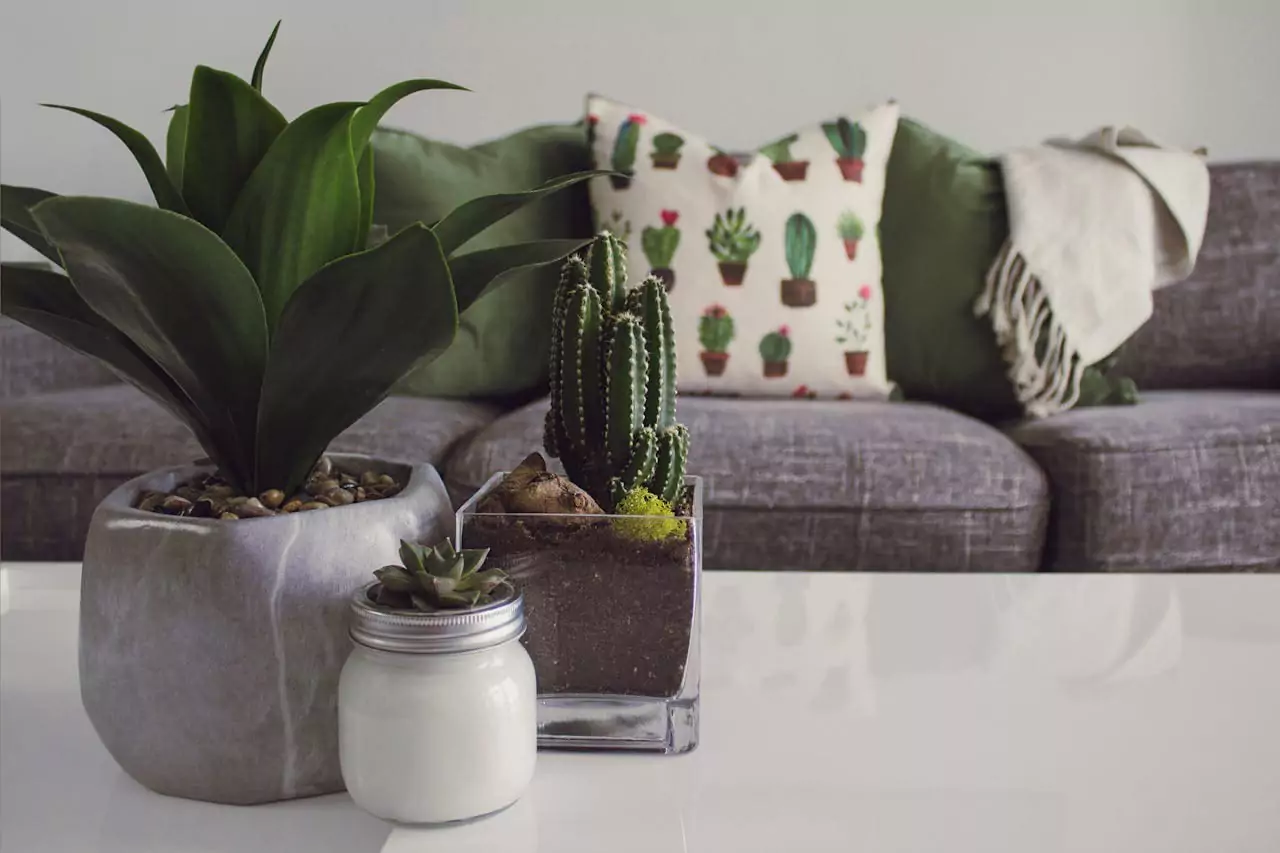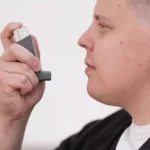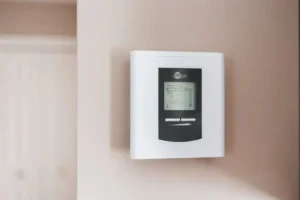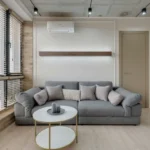Now Reading: Can Air Conditioner Make You Sick?
- 01
Can Air Conditioner Make You Sick?
- Home
- Home Appliances
- Can Air Conditioner Make You Sick?
Can Air Conditioner Make You Sick?
![]() Anne MaddisonHome Appliances, Climate ControlJuly 28, 2025223 Views
Anne MaddisonHome Appliances, Climate ControlJuly 28, 2025223 Views

If you’ve ever felt sick after spending time in an air-conditioned room, you’re not alone. Many people wonder, “Can air conditioner make you sick?” While AC keeps your home cool and comfortable, it might also affect your body in ways you don’t notice right away.
In this article, we’ll explain what really happens when you stay in AC for too long and what you can do to stay healthy.
Common Health Problems Linked to Air Conditioners
Air conditioning helps us stay cool, but it can also lead to health issues if you’re not careful. Below are some health effects of AC that many people experience, especially when the unit is not clean or the room is poorly ventilated.
Dry Skin and Eyes
Air conditioners pull moisture out of the air. When the air gets too dry, it can affect your skin and eyes. You might notice your skin feels tight or itchy. Your eyes might get red or feel like something is in them, especially if you wear contact lenses.
Mayo Clinic explains that low humidity levels indoors are a common cause of dry skin and dry eyes.
Nosebleeds or Itchy Throat
Breathing dry air for a long time can also irritate your nose and throat. This may cause a scratchy throat or even nosebleeds. If you wake up with a sore throat and your AC runs all night, dry air might be the reason.
Cleveland Clinic shares that dry indoor air is one of the top causes of nosebleeds and throat irritation.
Sneezing or Coughing
Dust, mold, and bacteria can collect in your AC unit if you don’t clean it often. When the AC is turned on, it blows these things into the room. This can lead to AC sickness symptoms like sneezing, coughing, or allergies.
EPA warns that dirty air filters can spread pollutants and allergens throughout your home.
Headaches from Cold or Poor Airflow
Cold air can cause muscle tension, especially if it blows directly on your neck or head. That’s why some people get headaches after sitting under an AC for too long. Poor airflow can also make the room feel stuffy, which may lead to discomfort and headaches.
World Health Organization (WHO) mentions that poor air quality indoors can affect comfort and health.
Air Fatigue (Feeling Tired in AC Rooms)
Some people feel sleepy, dizzy, or heavy-headed in air-conditioned spaces. This is often called “air fatigue.” It can happen when the room lacks fresh air or when the temperature is too cold for too long. The body has to work harder to stay warm, which can lead to tiredness.
Healthline reports that staying in AC rooms for long periods can lower oxygen flow and make you feel tired or drained.
Is It the AC That Makes You Sick or Something Else?
Some people think air conditioners are the reason they get sick. But most of the time, it is not the AC itself causing the problem. It is what is inside the AC or particles in the air around you.
Air conditioning systems are built to make you feel more comfortable. They cool warm rooms and help lower humidity. But if the system is dirty or not taken care of, it can end up making you feel worse instead of better.
Let’s look at what might actually be causing the issue.
Your AC Does Not Create Germs but It Can Spread Them
An AC unit does not make people sick on its own. But it can move germs, bacteria, and viruses around a room. If someone sneezes or coughs, the AC airflow can carry those tiny germs from one corner to another. This happens more in closed rooms with little to no fresh air. When windows stay shut, there is nowhere for the germs to go, so they keep moving around inside.
💡 A room with poor airflow and no fresh air can make sickness spread more easily.
Dirty Filters Can Make You Feel Worse
The filter in your AC is supposed to catch things like dust, pollen, and dirt. Over time, this filter fills up. If it is not cleaned or replaced, it cannot do its job anymore. Instead of catching the bad stuff, it starts blowing it back into the room. This can lead to sneezing, itchy eyes, dry throat, or dusty smells in the air. If you have pets, the filter may also get clogged with pet fur or dander. This makes allergies worse for children and people with asthma.
💡 Check your AC filter once a month. If it looks dusty or gray, it is time to clean or replace it.
Mold and Mildew Might Be Hiding Inside
AC units pull water out of the air to keep things cool. But if the water stays inside too long, mold and mildew can grow. This often happens if the unit is old or not draining well. Even while you can’t always see mold, you can usually smell it. A common indicator is a musty or damp smell.
Breathing in mold spores can make you feel tired, give you a headache, or cause coughing and breathing issues. People with weak immune systems or allergies are more sensitive to mold. But even healthy people may feel sick after being around it for too long.
💡 If you smell something musty when the AC turns on, look around the vents or inside the unit. Mold often looks like black, green, or brown spots.
Vents and Ducts Can Carry Dust and Germs
If you use central air, your system pushes air through ducts and vents in the walls, floors, or ceilings. Over time, these spaces can collect dust, pet hair, and even small bugs. Every time the AC starts, it can blow all that stuff into the air you breathe. If you see a puff of dust when your system kicks on, that is a warning sign. Your vents or ducts might need to be cleaned.
💡 Use a duster or vacuum to clean around your vents every few weeks. If you have central air, think about getting your ductwork cleaned once a year.
Dirty Filters Are a Big Problem
Air conditioners have filters inside them that are meant to catch tiny particles in the air. This includes dust, pollen, dirt, and even pet hair. At first, these filters do a good job. But over time, they get congested and dirty. When that happens, they can’t clean the air properly anymore.
Instead of trapping the bad stuff, a dirty filter starts to do the opposite. It sends the dust and allergens right back into the room every time the AC runs.
This can lead to problems like:
- Sneezing and coughing
- Itchy or watery eyes
- Scratchy throat
- Dusty smells that don’t go away
If you have pets, your filter can also fill up with fur and dander. That makes things harder for people who already have allergies or asthma. Kids and older adults might be more sensitive too. Keeping your filters clean is one of the easiest ways to improve your indoor air and reduce sickness caused by poor air quality.
💡 Check your AC filter once a month. If it looks gray, dusty, or thick with dirt, it’s time to clean or replace it.
Can Sleeping with the Air Conditioner On Make You Sick?
Many people ask if sleeping with the AC on can make them sick. The short answer is not really—but it depends on how you use it.
Cold air on its own does not cause sickness. But sleeping in a cold room for too long, especially with the AC blowing directly on you, can make you feel uncomfortable the next day.
You Might Wake Up with Sore Muscles or a Scratchy Throat
When the room is too cold at night, your body can react in small ways. You might feel stiff in the morning or notice your throat feels dry or scratchy. This is common if the AC blows right at your face or if the air is too dry.
Some people also feel tightness in their neck or shoulders after a night in a cold room. That’s not because you’re sick—it’s because your muscles tensed up from the cold.
Cold Air Can Affect Circulation and Breathing
If the AC makes the room very cold, it can sometimes slow your circulation. This may leave your hands or feet feeling cold even under blankets. For people with breathing issues, very cold and dry air can make it harder to breathe comfortably.
💡 Try not to set the temperature too low. A good range is between 65-68°F for sleeping.
Tips for Sleeping Better with the AC On
- Point the airflow away from your bed
- Use a timer so the AC turns off after a few hours
- Try a fan or dehumidifier for light cooling
- Keep a light blanket nearby if you feel chilly
- Clean your AC filter so the air stays fresh
💡 Your AC can help you sleep better by keeping the room cool, but only if used right. Make sure the cold air doesn’t blow straight at you and keep the room at a comfortable temperature.


What Are Healthy Indoor Humidity Levels?
Since air conditioners cool the room by pulling heat and moisture out of the air, running your AC for long periods can lower humidity too much. So, what’s a good humidity level? Experts say that the best indoor humidity level is between 30% and 60%. This is the sweet spot where the air feels comfortable and your body stays healthy.
When humidity goes below 30%, the air becomes too dry. When it goes above 60%, the room can feel sticky, and mold can grow more easily. You can use a small tool called a hygrometer to check your room’s humidity. Many smart ACs or thermostats also show this information.
When to Use a Humidifier
If your room feels dry, you can use a humidifier to add moisture back into the air. These are small machines that release water vapor. You can use one while you sleep or run it during the day in rooms that feel extra dry.
Here are some signs you might need a humidifier:
- You feel dry or itchy even when your AC is running
- You get static shocks when touching metal
- You see cracks in wooden furniture or floors
- Your plants start drying out faster than usual
There are different types of humidifiers: cool mist, warm mist, and even ones that connect to your Heating, Ventilation, and Air Conditioning (HVAC) system. Pick the one that fits your space and needs.
💡 You don’t need to turn off your AC to fix dry air. Just balance it out with a humidifier.


How to Stay Healthy While Using an Air Conditioner
Staying cool doesn’t mean you have to get sick. You can enjoy your air conditioner and still keep your body feeling good by following a few simple habits.
Set the Right Temperature
The best temperature for comfort and health is usually between 72°F and 78°F (22°C to 26°C).
Too cold can lead to chills, dry skin, or sore muscles when you wake up. Too warm and your AC won’t do its job.

Setting your AC to the right mode also makes a difference. Some modes are better for saving energy while keeping you cool. Read more about which AC mode saves the most electricity.
Clean the Filters Regularly
Dirty filters blow dust and allergens back into your room. This can cause coughing, sneezing, or itchy eyes.

Use an Air Purifier for Cleaner Air
Even with clean AC filters, indoor air can still carry dust, pet dander, and other tiny particles. An air purifier helps remove these from the air, making it easier to breathe—especially if you have allergies or asthma.



Let in Fresh Air Sometimes
Running the AC all day can make indoor air feel stale. Even though it cools the room, it doesn’t bring in new air.

Use a Humidifier if the Air Feels Dry
You may require a humidifier since air conditioners remove moisture from the air, particularly if your skin or throat feels dry. A small humidifier can help keep humidity in the 30%–60% range, which is ideal for your health.
Don’t Block Air Vents
Make sure air can flow freely in the room. If vents are blocked by furniture or curtains, the cool air can’t spread properly.

When Should You See a Doctor About AC-Related Symptoms?
Most of the time, air conditioners just make you feel cool and comfortable. But sometimes, they can cause health problems—especially if the air is too dry, the filters are dirty, or the AC is used too much.
Here are some warning signs that your AC might be affecting your health:
Common AC-Related Symptoms
- Coughing or sneezing that doesn’t go away
- Stuffy or runny nose every day
- Itchy, dry skin that doesn’t get better with lotion
- Red, watery, or itchy eyes
- Tight chest or trouble breathing
- Feeling tired or foggy when indoors

When to See a Doctor
If you’ve tried cleaning your AC filter, using a humidifier, or opening windows for fresh air—but the symptoms still don’t go away—it’s time to check with a doctor.
How to Know if Your AC Is Causing Your Symptoms
It’s not always easy to tell, but here are some things you can do:
- See if you feel better after turning off the air conditioner for a day or two.
- Try staying in another room or house to compare symptoms
- Check your filter and vents—are they dusty or moldy?
- Use a hygrometer to see if the air is too dry (below 30% humidity)

Final Thoughts
Many people think air conditioners make you sick. But the truth is, it’s not the AC itself. Most problems come from how it’s used and whether it’s well taken care of. Your body can sense whether the air is too dry, the filters are unclean, or the vents are blocked. You may experience itchy eyes, a stuffy nose, or more fatigue than normal. You don’t have to quit using air conditioning, though.
With a few simple habits, you can stay cool and feel good at the same time. Set the temperature to a comfortable level. Clean your filters once a month. Let in some fresh air now and then. And don’t forget to check the humidity. These small changes can make a big difference.
Instead of making you feel worse, your air conditioner should make you feel better. You can enjoy the cool air without fear of getting sick if you take the right precautions. Comfort and health can work together, you just need to give your AC a little attention.
Disclaimer: Some links on this page are affiliate links. This means we may earn a small commission at no extra cost to you if you make a purchase through them.
Related Posts
Previous Post
Next Post
Previous Post
Next Post
Home SecurityJuly 30, 2025
Signs Your Home Router Might Be Hacked
Home AppliancesAugust 24, 2025
Are Home Air Conditioner Tune Ups Necessary
Climate ControlAugust 23, 2025
Can Air Conditioning at Home Trigger Asthma?
- 04
Home InternetJuly 30, 2025
Signs Your Home Router Might Be Hacked



